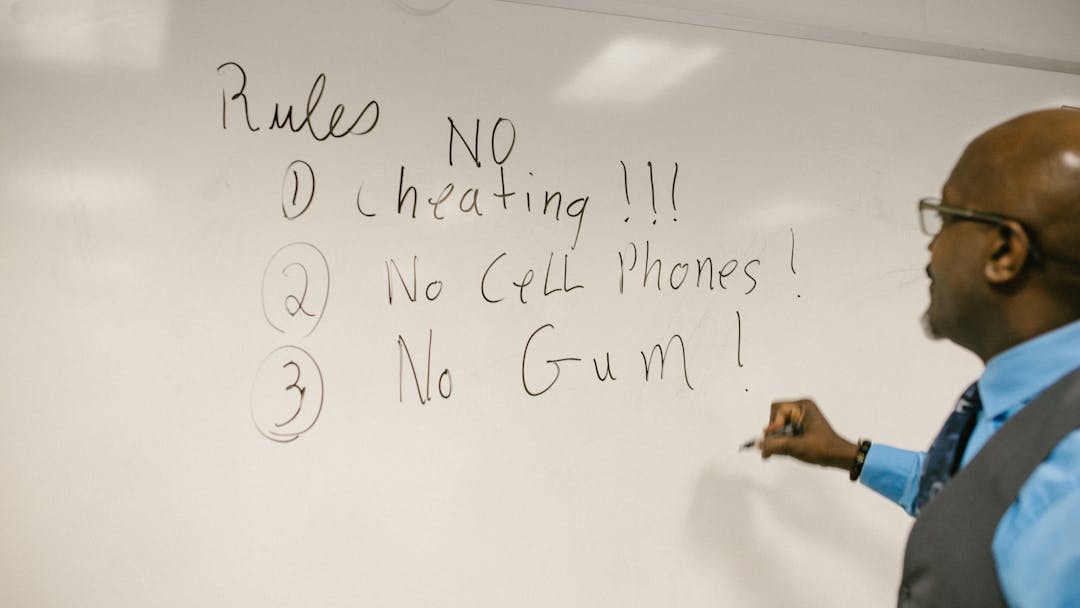Understanding the Rule of Completeness in Michigan Courts: MRE 106
In the pursuit of truth and ensuring fairness during legal proceedings, the Michigan Rules of Evidence (MRE) play a crucial role.
One particular rule, MRE 106 (Completeness), safeguards against misleading interpretations and fosters a more comprehensive understanding of presented evidence.
What is the Rule of Completeness?
MRE 106 states: “If a party introduces part of a writing or recorded statement, any other party may introduce the remainder, or so much thereof as is relevant to the portion introduced, if the remainder or portion thereof offered completes the statement or renders it more understandable.”
In simpler terms, when a portion of a written or recorded statement is presented in court, the opposing party has the right to introduce the remaining relevant parts of the statement.
This ensures that the jury or judge hears the full context and avoids being swayed by a potentially misleading snippet of evidence.
Why is the Rule of Completeness Important?
Imagine a scenario where the prosecution presents a written excerpt from a witness’s statement, highlighting a specific sentence that seemingly incriminates the defendant. Without the complete statement, the jury might be left with an incomplete picture, potentially overlooking crucial contextual details or even contradictory information that could exonerate the defendant.
MRE 106 prevents such scenarios by allowing the defense to introduce the remaining relevant parts of the statement. This ensures that:
- The jury has access to a more complete picture and can make a well-informed decision based on all relevant information.
- Misleading interpretations are minimized as the opposing party can present the full context of the statement.
- Fairness is upheld by allowing both sides to present a complete picture of their case.
It’s important to note:
- The opposing party can only introduce relevant portions of the statement, not everything. The court will determine what constitutes relevant information based on the specific case and the previously introduced portion.
- MRE 106 only applies to written or recorded statements, not oral statements.
Conclusion
MRE 106 plays a vital role in ensuring fairness and promoting a complete understanding of evidence in Michigan courts. By allowing the introduction of relevant, contextual information, the rule helps prevent misleading interpretations and fosters a more just legal process.

Related Articles
No Results Found
The page you requested could not be found. Try refining your search, or use the navigation above to locate the post.
More Posts

Komorn Law-In the News-Fox17
Komorn Law | In the News | Fox 17 News | Links Medical marijuana battle: Father fights for custody of son OTTAWA COUNTY, Mich. – Medical marijuana is a controversial, sometimes sticky issue, especially in Michigan. Max Lorincz is a father from Spring Lake who...


US court upholds ban on selling guns to marijuana card holders
SAN FRANCISCO — A federal ban on the sale of guns to medical marijuana card holders does not violate the Second Amendment, a federal appeals court said Wednesday. The ruling by the 9th U.S. Circuit Court of Appeals applies to the nine Western states that fall under...
AVVO Ratings and Reviews Update Aug 2016
Michael Komorn’s reviews 5.0 stars - 23 Total Avvo Rating: 10.0 out of 10 Cases dismissed 5.0 stars Posted by Ryan August 24, 2016 I had two charges in Wayne county. I was facing 6 years in prison. Michael was very informative and reassuring...


US Dept of Justice letter regarding prosecution for marijuana
Attorney General Eric Holder's speech regarding dropping mandatory minimums for many drug crimes is already making an impact. Read the letter from the DOJ


Clio marihuana dispensary fighting Genesee County Prosecutor’s office in court
CLIO (WJRT) - (04/25/16) - A Mid-Michigan marihuana dispensary is fighting the Genesee County Prosecutor's office in court after FANG shut them down. The owner of the Clio dispensary says warrants weren't valid and he wants his business back open. Attorneys...


New Roadside Drug Test
What is the law? The Michigan legislature has passed into law a one-year pilot program set up in five counties that allows for Michigan State Police to perform roadside drug tests. The way this will work is if a driver gets pulled over for a traffic offense, in...


Why Are Michigan Prosecutors Reassessing Their Cases Against Medical Marijuana Patients?
Trying to understand why prosecutors in St. Clair County, Michigan, suddenly decided to drop their case against Ginnifer Hency, a medical marijuana patient and caregiver, and return the property that police seized from her home, I obtained several court documents from...


Attorney: Crime labs ‘falsified’ marijuana reports
A Southfield lawyer alleges the Michigan State Police crime labs have “falsified lab reports on marijuana statewide” and he’s asking a judge to dismisses charges lodged against a client. Michael Komorn, who also represents defendants in Livingston County, said...


Clio marihuana dispensary fighting Genesee County Prosecutor’s office in court
CLIO (WJRT) - (04/25/16) - A Mid-Michigan marihuana dispensary is fighting the Genesee County Prosecutor's office in court after FANG shut them down. The owner of the Clio dispensary says warrants weren't valid and he wants his business back open. Attorneys...



Medical marijuana patients reunited with son after lengthy court battles, unfounded drug charges
SPRING LAKE, Mich. -- After 18 months, a Spring Lake family's son is out of foster care and reunited with his parents. Yet the fight to be together, through court battles and serious drug charges despite being card-carrying medical marijuana patients, still haunts...









